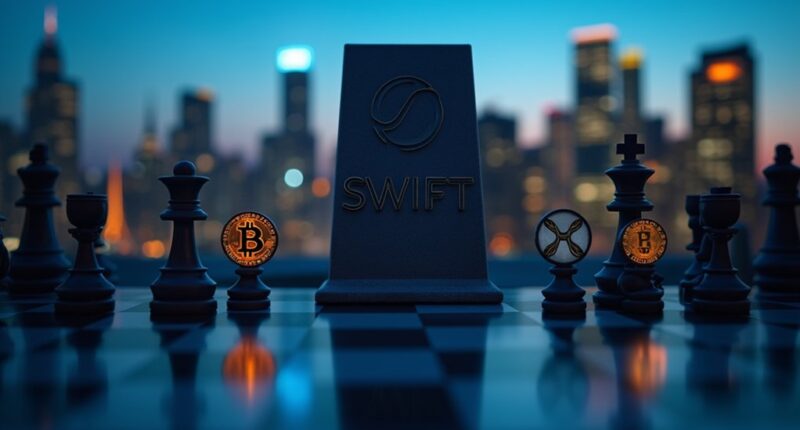The prospect of a Bitcoin ban, long touted by regulators as an inevitable crackdown on financial anarchy, now collides headfirst with the pragmatic innovations of XRP and RLUSD—digital contenders that not only question the archaic supremacy of SWIFT’s global transaction monopoly but also expose the glaring inefficiencies and regulatory myopia embedded within traditional financial infrastructures. Bitcoin’s turbulent regulatory landscape, marked by fragmented legality and exacerbated volatility, has prompted authorities worldwide to contemplate draconian measures ostensibly designed to protect economic stability, yet these efforts often betray a profound misunderstanding of decentralized finance’s transformative potential. Meanwhile, XRP’s targeted use in cross-border payments and RLUSD’s promise of stablecoin reliability underscore a critical pivot away from Bitcoin’s unruly volatility toward pragmatic, interoperable solutions that challenge SWIFT’s entrenched dominance with a mix of speed, cost-efficiency, and adaptability. Data from January 2019 to March 2025 shows a shifting landscape in international payments, with digital currencies gradually influencing the share of total transaction value in global finance. Notably, innovative blockchain protocols like Kaspa demonstrate how high throughput and scalability can be achieved through advanced consensus mechanisms.
SWIFT, the heavyweight champion of global transaction networks, is not standing idle; its planned 2025 live trials involving banks across multiple continents signify a reluctant acknowledgment that digital assets cannot be ignored, even as it attempts to co-opt them into its legacy framework. These trials aim to interlink digital and traditional currency platforms, leveraging SWIFT’s existing network to enable seamless cross-border transactions and address the issue of disconnected digital platforms or “digital islands” interlinking digital networks. This move, however, speaks volumes about the inherent tension between innovation and control, as SWIFT’s adaptation may simultaneously legitimize and stifle competing digital currencies like XRP and RLUSD, preserving its monopoly under the guise of modernization.
Financial fragmentation, exacerbated by divergent regulatory regimes and a lack of true interoperability, fuels this standoff, imposing burdensome costs and jeopardizing global economic growth. As SWIFT seeks to unify disparate systems, the question remains whether regulators will embrace genuine innovation or cling to outdated paradigms, risking economic stagnation while Bitcoin faces its precarious future on the chopping block.









